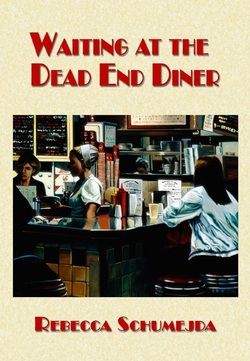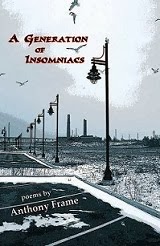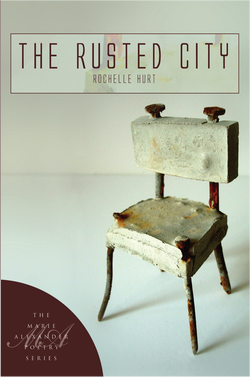
In this book, the poet enters the Dead End Diner as a waitress. While I am always hesitant to say that the "I" in any poem is the poet, in this case it's probably true, since the book synopsis says that while Schumejda was working on this book, "she put her apron back on and waited tables, discovering that her respect for the industry is unwavering." Throughout this collection, the reader meets the waitresses, the cooks, the regulars, and even the boss of the Dead End Diner, all the while exploring both the workplace and the personal trials and tribulations of her characters.
Certainly, some readers would say that the focus of this collection is on the work of the restaurant industry, and in some ways, this is true. Many poems display the day-to-day work of waitresses balancing trays and busboys cleaning off tables. Others tell more specific stories. In one poem, "The Leaf Pepper Special" we learn that the waitresses encourage customers to order the cook's special "a butternut squash soup/a hamburger with American cheese/and red velvet cake with chocolate icing" because Rick has promised a twelve-pack "for the waitress who sells the most." In other poems, we learn the distasteful task of dealing with rude customers (a normal part of a waitress's job, I am afraid). One image that has stuck with me is found in "Tip" where the narrator lists some of the strangest tips she has ever received including "scratch-off lottery tickets, two shiny/pennies left heads up, a handful of/condoms, a golden hundred dollar Monopoly bill" but then ends her list describing a truck driver who talked to her about missing his kids, and then leaves her "a twenty for listening and a/tiny tooth nested on a coffee spoon."
Still, it's the people who take center stage of this collection. We meet Carlos, who busses tables in order to get his wife and children to the United States. We meet Rick, the cook, a brash man who shouts racist comments but also has a secret life as a cross dresser. We meet Kitty, a regular who "always wears shirts adorned with cats/and white laceless tennis shoes with/handmade Puff Paint kitchens on the front." We meet Maggie who has been a waitress for so long that she considers herself "tough as razors." We meet the owner's wife, whose presence disrupts the kitchen so that "either scatter to the darkest corners/ like roaches or buzz around like bees." Indeed, this collection could easily be read as a novel in verse, with the main character navigating a single story line throughout the book while exploring both the outer conflicts of the setting and the inner conflicts of the characters themselves.
Schumejda's poetic language is blunt and sometimes, harsh. At first glance it may seem that Waiting at the Dead End Diner lacks the lyrical line found in much of the music of today's poem. But then, the reader will realize that there is music here: it's the hard edge of working-class life that sings with a stubborn but hopeful melody all of its own.



 RSS Feed
RSS Feed
